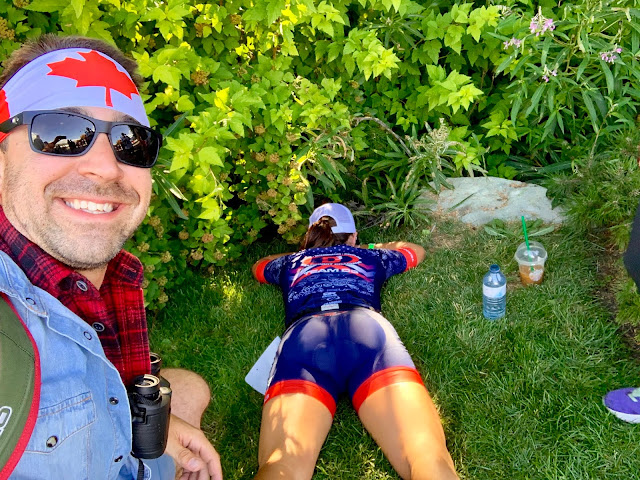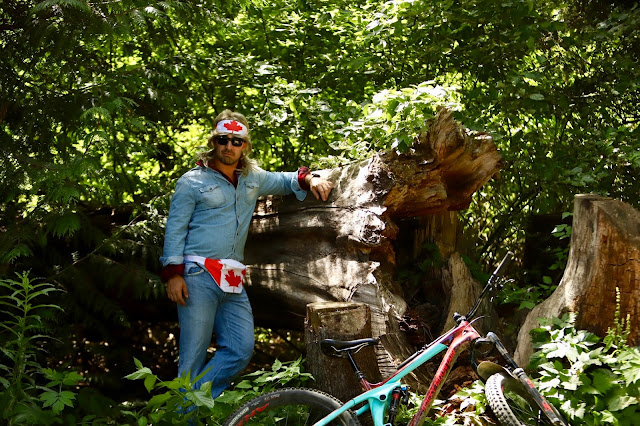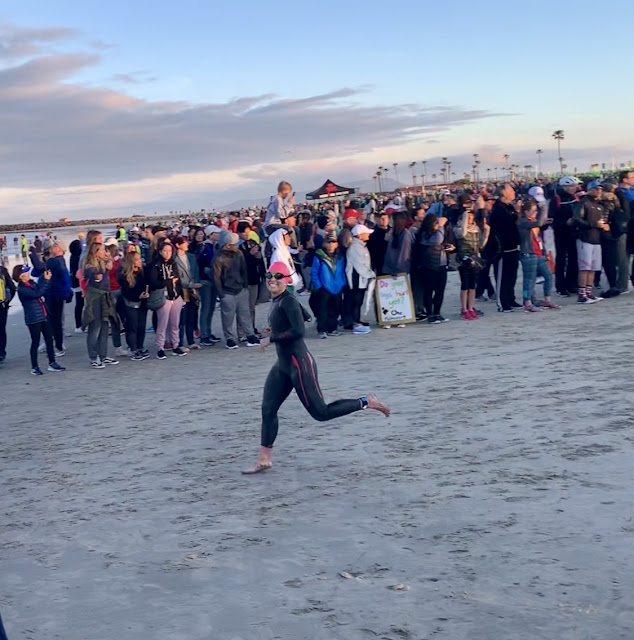That’s a wrap on my 2019 triathlon season. My first season coaching myself is over and although I didn’t make progress in terms of how I placed in my IM’s: 4th last year at Chattanooga, to 4th at IM Canada, to 4th at IM Louisville, my spot on the podium doesn’t tell the whole story.
Last year when I found out the swim was canceled at IM Chattanooga, I was devastated. It took me the better part of a day to get my shit together, stop crying and feeling bad for myself, understand that I have no control over the circumstances, and focus on executing a solid bike and run. This year when I found out the swim was canceled at IM Louisville, I wasn’t even phased. Even my gut reaction to opening the email was calm and accepting. Maybe my experience at IM Canada in between these 2 races (vomiting every few hours for 2 straight days heading into the race) made me appreciate something less intrusive. I was healthy and I was still going to be able to race. Even though the swim is a strength for me, I’ve gained a lot of confidence in my ability to bike and run with some of the best women in my age group, and I thought I still had a chance to fight for a Kona spot. My reaction also showed me that I’ve learned that the best use of my energy is spent on maximizing my effort and attitude. Giving away my energy to doubt, fear, or anything outside of my control takes away from the progress I’ve worked so hard to gain.
It was below 40 degrees in the morning for our time trial bike start, but I had already made the decision that cold is an opinion, and I started getting my typical pre-race giddy school girl smile on as I made my way to the start line.
One of the big things I’ve been working on this year is creating a better balance between my training and recovery. It’s easier to be disciplined about working hard than it is to be disciplined about holding back when you need to. I wanted to be consciously focused on saving my best efforts of the year for race day, not for training. It doesn’t matter how many hours you log, what your FTP is, or how many hill reps you ran if you can’t show up on race day and be fresh and prepared to fully express your fitness.
The Louisville bike course was constantly rolling hills. There were no really big climbs, but the up-and-down never really subsided, for a grand total (according to my Garmin) of 6,591 feet. My power was right on target and I’m most proud of the fact that despite the nature of the course, I maintained a variability index (measure of pacing) of 4%. I didn’t know that at the time because I can’t be bothered by my watch and it’s insistence on providing me with data and numbers while I’m racing, but that would be the key factor that set me up for a big marathon PR. All I knew was that I felt good and I was ready to get the F off my bike and run some girls down.
 |
| My Kentucky-Derby themed race sherpa, in all of his glory |
One of the reasons I don’t look at my watch while I’m racing is because I believe it keeps me safely within my limits and I’m not here to play it safe. If I’m going to reserve my best effort for race day, I have to be prepared to hit higher power and run faster paces than I have in training, and if those numbers are going to scare me into thinking I can’t hold them, then I’ve let doubt take away from my energy. What I’ve trained to be able to do is know what a sustainable pace feels like so that whatever that pace is on race day, I just trust the feeling and go with it.
So when I got off my bike and started knocking off a few sub 8:00 miles (which I’ve never done before), I just shrugged and figured I was going to run faster than I ever have. According to my Kentucky Derby inspired race sherpa, I got off the bike in 7th and had some work to do. I stayed focused and in the zone the entire run, knowing how much faster I was running than I have in previous marathons, and doing everything I could to keep it flowing. Just like in IM Canada, it took me forever to actually catch anyone. I saw Ryan at the 23 mile mark, where he let me know that I was 1:40 back of 4th place. So I dug in, knowing that if 4th place got me a Kona spot, and 5th place didn’t, I had no choice but to make up that time.
As it turns out, 3rd place was where I needed to finish for a Kona spot, but I can honestly say I didn’t have the fitness on Sunday for 3rd. There were some really impressively fast women in my age group, and the top 3 earned the crap out of their tickets. I did, however, finish with a marathon PR, coming in at 3:34, and a 15 minute overall improvement from Duathlon Chattanooga last year.
As a coach, I preach to my athletes that your performance goals have to take precedence over your outcome goals. You can control how fast you go, but you can’t control who else shows up and goes faster. I’m always “gifted” with lessons from my races that I can turn into strengths moving forward, so having the swim canceled again felt like yet another annoying round of “you don’t have control over anything.” But I think it’s more than that. I think that my next lesson is that I haven’t used my power and energy to control everything that I can. There’s more to uncover. I have to be ready to go into any race, under any circumstances, and know that my preparation has put me in a place to reach my goals. I’m realizing that I have more to unlock within myself, and that leaving results up to too much chance is giving up too much power.
 |
| #racechins |
I believe whole-heartedly in the power of my intentions, and if I’m being honest with myself, I haven’t given the swim the attention that it deserves as part of an Ironman. I swim about an hour for 2.4 miles, on average, which has seemed fast enough to put it on the back burner, while I dedicate the majority of my time and energy to biking and running. I haven’t treated the swim like it’s a real part of the race, and the Ironman gods/universe/whatever have heard my message and made it literally not a real part of the race. Next season, that changes. And that’s just one thing. I know there are others. It’s time to get really honest with myself… right after a few weeks of laying on my couch and eating all the gluten.
 |
| Finish line love. |

 |
| Our album drops next year. |



































